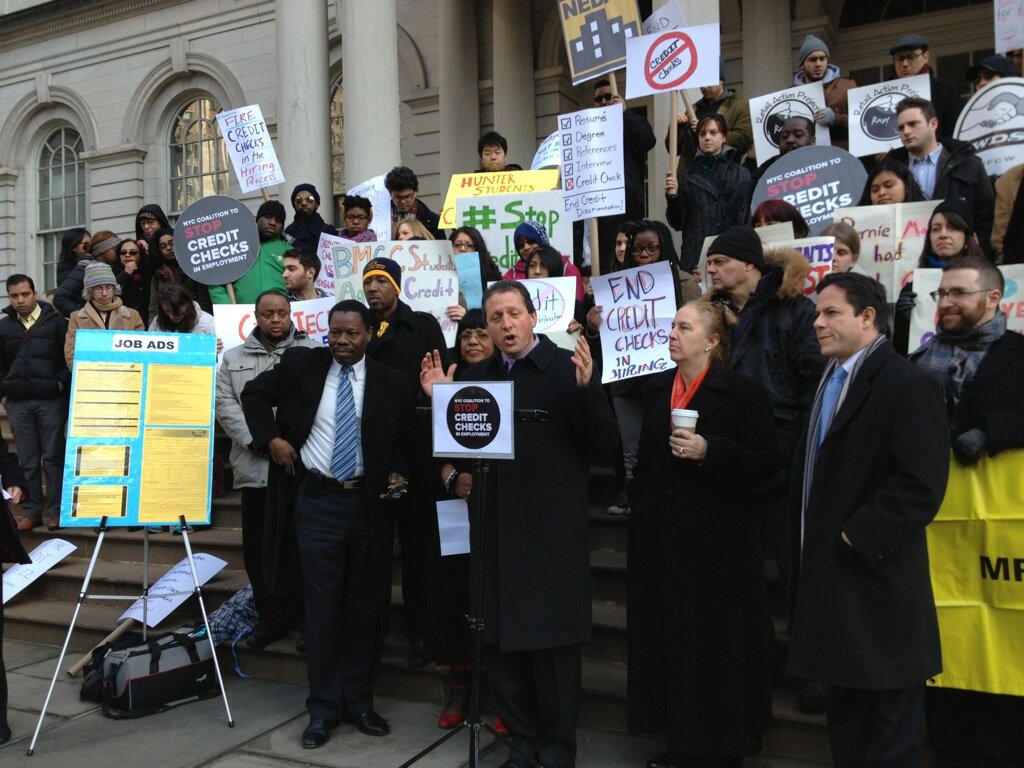
"I served in the military for 30 years and received the highest level security clearances," said Brooklyn resident and war veteran Emmett Pinkston. "Yet I was turned down for a job as a TSA baggage screener, because of a bogus charge on my credit report. I found myself stuck at a low paying job."
On Wednesday, Pinkston joined the crowd amassed on the steps of New York City Hall, calling on the City Council to pass Intro. 857, the Stop Credit Discrimination in Employment Act, which would bar local employers from using a job applicant's personal credit history as a factor in hiring decisions. The bill would help Pinkston and others land jobs they are otherwise highly qualified for.

Even as a representative of a major credit reporting company has admitted that there is no evidence linking credit reports to job performance or likelihood of criminal activity, nearly half of employers conduct credit checks as part of their hiring process. Poor credit may reflect errors on credit reports, as it did in Emmett Pinkston's case, or factors such as medical debt, a messy divorce, predatory lending, or simply unemployment.
In a nationally representative survey of low- and middle-income households carrying credit card debt, Demos found that households with members who have been unemployed as long as three years ago still report having worse credit: 41 percent describe their credit as "fair" or "poor" compared to just 24 percent of households on the survey population that have not experienced job loss in the past three years.
Research also indicates that African-Americans and Latinos, who have experienced higher rates of unemployment and have in some cases been targeted for predatory loans, are disproportionately likely to be shut out of jobs because of poor credit. That particularly troubled Council Member Debi Rose, Chair of the Council's Civil Rights Committee.
"Enough is enough!" Rose proclaimed. "Few in this bad economy have escaped with their credit history unscathed. We do not want to return to the days of Dickensian debtors prisons... I am concerned about the disparate impact this practice has on protected classes, which are often the populations with the highest unemployment rates in the city."
The New York City bill, sponsored by Councilmember Brad Lander, has 35 co-sponsors, indicating robust veto-proof support in the NYC Council. A large coalition of community, labor, civil rights, legal services and student organizations, including NEDAP, NYPIRG, Demos, and the Retail Warehouse and Department Store Union are supporting the legislation. If the bill is enacted, New York City will join eight states that have already taken action to restrict the use of credit information in employment.
